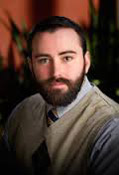ARCHIVED: NOT AVAILABLE FOR CREDIT
The Illusion of Quality: A Discussion of Roadblocks to Laboratory Quality and Case Studies of How to Make Things Better
The purpose of this presentation is to emphasize the need for every laboratory to continuously review its quality processes. The recent changes surrounding Equivocal QC practices provide an opportunity for laboratories to ensure minimum requirements are met and a chance to move towards raising the bar internally for quality requirements. Practical and real-world examples of how to prepare, implement, and measure the impact of changing quality will be presented and discussed.
Originally presented on June 25, 2015, in Salt Lake City, Utah.
Lecture Presenter
 | Frederick G. Strathmann, PhD, DABCC (CC, TC) Medical Director, Toxicology Laboratory |
Dr. Strathmann is a medical director of Toxicology and an associate scientific director of Mass Spectrometry at ARUP Laboratory, as well as an assistant professor of pathology at the University of Utah School of Medicine. Dr. Strathmann received his MS and PhD in pathology and laboratory medicine at the University of Rochester in New York, completed a clinical chemistry fellowship at the University of Washington in Seattle, and is ABCC board certified in clinical chemistry and toxicological chemistry.
Objectives
After this presentation, participants will be able to:
- List several areas of the specimen life cycle where risk assessment is needed.
- Compare an equivocal QC plan with an IQCP.
- Discuss available methods and techniques to acquire a current state assessment of laboratory quality.
- Develop a plan to implement a change to current quality practices.
- Demonstrate the positive outcomes of a successful quality redesign.
Sponsored by:
University of Utah School of Medicine, Department of Pathology, and ARUP Laboratories
 Site Search
Site Search

